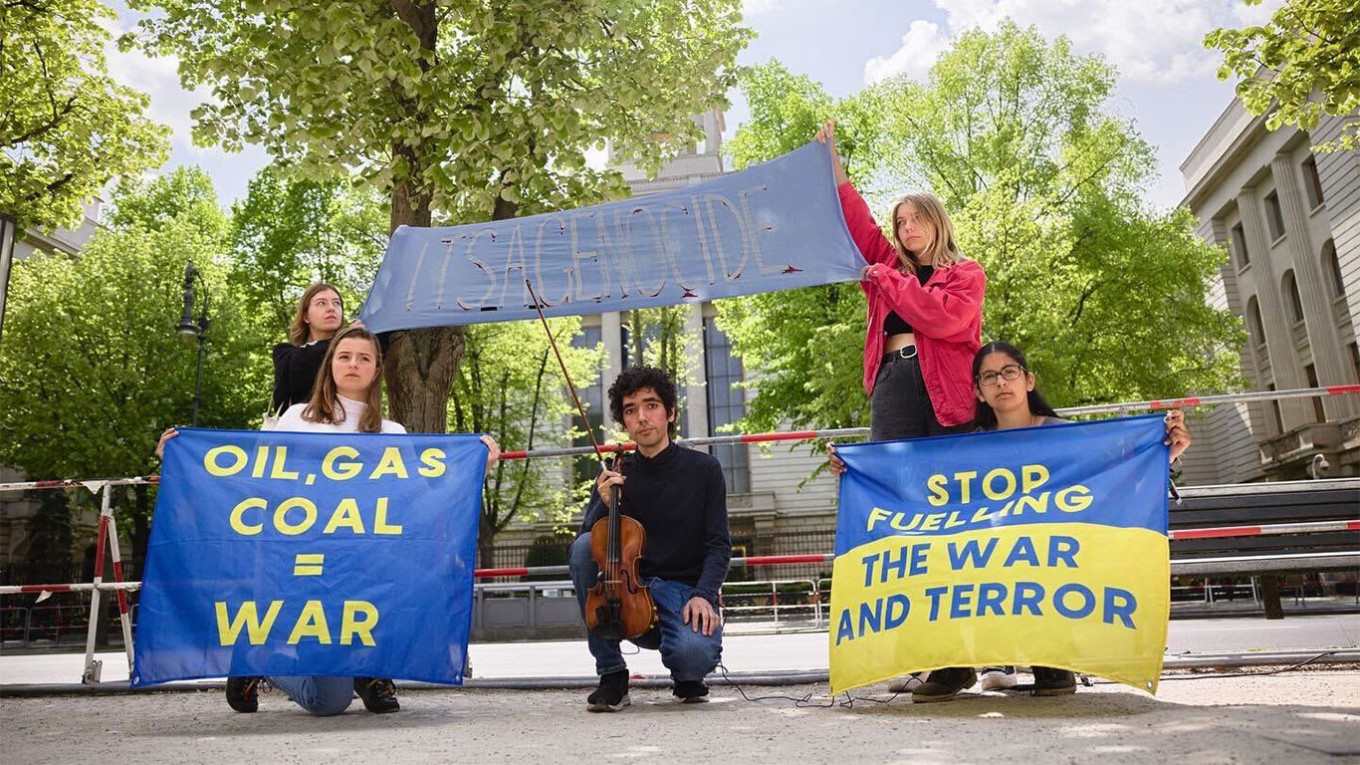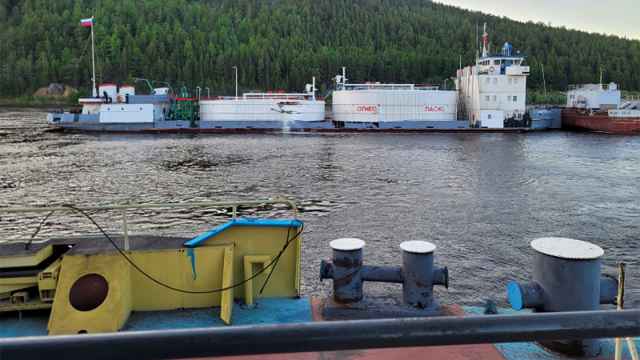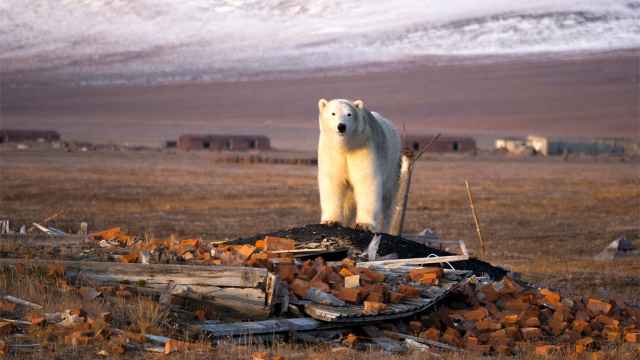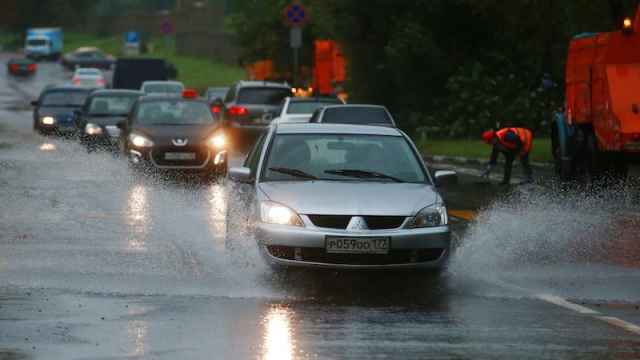The Prosecutor General's Office has declared Greenpeace's activities in Russia "undesirable." The Russian Federation's shift towards dictatorship persists, and despite numerous compromises made by Greenpeace's Russia leadership, they were unable to prevent the closure of their office.
I had written this article prior to the decision, but it didn't change anything. And I will not make any changes to the text.
Greenpeace should close its office in Russia immediately. Environmental organizations must be doing more to help destroy Russia’s fossil fuel dictatorship — they should not be paying taxes in Russia or attempting to negotiate with criminals in the Kremlin. There is no Greenpeace presence in other former Soviet nations including Ukraine, Georgia, Kazakhstan and Armenia. But there is one in Russia — and it's counterproductive.
While Russia’s political opposition is radicalizing, the country’s environmental movement continues to live in a world where disposable plastic and petty regional officials are the main problems.
President Vladimir Putin likes to make people feel like they are doing important work — while he prepares new repressions and destroys small environmental organizations. The presence of Greenpeace in Russia means the political crackdown is less visible.
The worst thing about Putin's propaganda is that it is so diverse. For example, there is a famous environmentalist — Zhora Kavanosyan — who posts Putin's propaganda and accuses Ukraine of shelling the Zaporizhzhia nuclear power plant that is occupied by Russian troops. At the same time, Kavanosyan criticizes regional officials and stands up for good environmental policies. Then there is the Ecologinya Telegram channel (with 63,000 followers), which supports the ruling United Russia party and backs Russian politicians who support environmental causes.
I’m sorry to say that Greenpeace is on the same spectrum. While activists outside Russia have written about logging in Kolomenskoye Park (to build military infrastructure), the topic was ignored by Greenpeace Russia. Nor has it raised the issue of flaring unsold gas (worth $10 million a day), local environmental protests, attacks on anti-coal activists and the myriad of environmental disasters that happen in Ukraine every day because of Russia’s war.
Greenpeace is silent on the most problematic topics — and it is hard to call this “controlled environmentalism” anything but Russian propaganda. Propaganda designed to be consumed by the community in Russia that favors action on the environment.
Oddly enough, environmental protests in Russia have been more successful than political protests. They have stopped the construction of the Baltic Nuclear Power Plant, prevented the building of a massive landfill site in Shiyes, defended Kushtau hill from exploitative mining — and there are many more examples.
Putin is afraid that millions of Greenpeace supporters in Russia will become politicized. And that they will find out that war also affects nature.
The Kremlin allows the environmentalists small victories. That way, people feel good because they have saved something from “bad officials” — like preventing the destruction of a local park. But such a strategy is embarrassing when Putin is destroying entire cities in Ukraine or is cutting down huge swathes of forests in Russia.
While climate activists are radicalizing around the world, blocking roads, and taking over the infrastructure of major fossil fuel corporations, Greenpeace Russia, the country’s largest environmental organization, is leading Russians in the opposite direction.
My family is being deported from Russia because I demanded an embargo on fossil fuels, which is the main cause of the climate crisis and the war in Ukraine. Meanwhile, Greenpeace keeps quiet, keeps getting money from Europe and pretending that they are fighting for the environment. In reality, they are part of Putin's propaganda machine.
I am not writing this to give Greenpeace a bad name, but to get people thinking. We need a radicalization of environmental protest — graffiti, leaflets, and green guerrillas. And I believe I have a moral right to demand this. I went out to protest and spoke out publicly about all of these issues while I was in Russia, long before the start of the war.
The strategy of Greenpeace — similar to other Russians who stayed “outside” politics for economic rewards — has allowed the Kremlin to start this criminal war. I am sure Greenpeace will not voluntarily shut down its Russian branch, but I am also sure that, one day, the Russian regime will decide to kick it out of the country. By that time, Greenpeace’s compromises in Russia will have discredited itself forever.
Russia is destroying cities in Ukraine, committing genocide, and has taken over a nuclear power plant. Despite this, Greenpeace keeps silent. Silence during genocide is complicity.
While penniless, exiled activists wrote about the environmental consequences of the war, Greenpeace has been silent. This is a betrayal of the values of the organization itself. "Green Peace" is impossible while Putin is in power. Green cities are impossible while there is war. You may not agree with me, but I ask you to think about these issues because the situation will only get worse. The world’s largest environmental organization has a responsibility not only to its employees — but also to the international community.
A Message from The Moscow Times:
Dear readers,
We are facing unprecedented challenges. Russia's Prosecutor General's Office has designated The Moscow Times as an "undesirable" organization, criminalizing our work and putting our staff at risk of prosecution. This follows our earlier unjust labeling as a "foreign agent."
These actions are direct attempts to silence independent journalism in Russia. The authorities claim our work "discredits the decisions of the Russian leadership." We see things differently: we strive to provide accurate, unbiased reporting on Russia.
We, the journalists of The Moscow Times, refuse to be silenced. But to continue our work, we need your help.
Your support, no matter how small, makes a world of difference. If you can, please support us monthly starting from just $2. It's quick to set up, and every contribution makes a significant impact.
By supporting The Moscow Times, you're defending open, independent journalism in the face of repression. Thank you for standing with us.
Remind me later.








